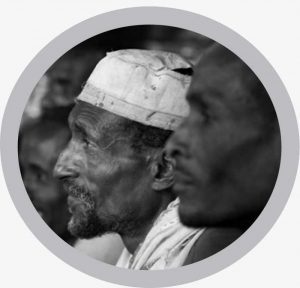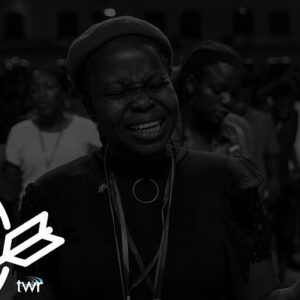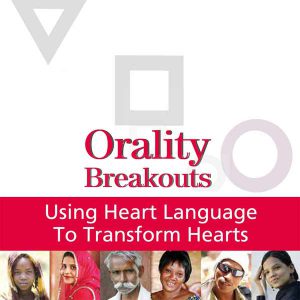The following is a chapter from the book ‘Orality Breakouts – Using Heart Language to Transform Hearts‘. A chapter will be posted here each week.
Chapter 9 – A Church Was Born
By Steve Sims
In early 2006, the Oral Communication Strategy team at e3 Partners Ministry1 began to consider where we could start our first project using Chronological Bible Storytelling as our primary strategy. After approaching our directors in several countries, God made it clear that Ethiopia was the place.
Soon after we decided on Ethiopia, we were contacted by a church in California that had been sending short-term teams there with our organization. They were interested in engaging an unreached people group, so we began to tell them about our plan to start a project using an oral strategy. We agreed to meet one of their teams later in the year in Ethiopia. Some of this team went with us to visit one of the Muslim unreached people groups to discuss the possibility of a project. After spending a week there, the church took time to pray and consider what God wanted them to do.
Toward the end of 2007, the California church chose an Ethiopian Muslim unreached people group that is known to be among the most resistant in Ethiopia. The group is conservative Muslim and one that, in the recent past, has killed several missionaries, as well as other Christians. Among this people group there have been churches planted, but mostly with a majority from other people groups, and these churches had not reproduced. At the time, I remember thinking that this ambitious choice would not have been my selection for our first oral strategy project, but I also believed that it was God’s choice.
Within a month or so, our e3 Partners Ethiopian national team was partnering with StoryRunners,2 a Campus Crusade for Christ organization that shared our vision. We had identified two missionary families from the target people group and were willing to engage their people with an oral strategy. In one family, the husband, Markos (pseudonym), came from a Christian family, and his wife, Raka’el (pseudonym), from an Orthodox family who disowned her when she became a believer. In the other family, Teki (pseudonym) and his wife, S’rai (pseudonym), came from a Muslim background. When they became believers, their parents disowned them and planned to kill them. They escaped from the area and, when I met them, had not been living among their people for several years.
 In March of 2008 we started the first round of training with these new missionaries; it lasted about three weeks. After a few days one of the missionaries said, “We thought that it would take years before we could take the Gospel to our people. They will kill us if we are found carrying the Bible. But now with these stories we can start right now.”
In March of 2008 we started the first round of training with these new missionaries; it lasted about three weeks. After a few days one of the missionaries said, “We thought that it would take years before we could take the Gospel to our people. They will kill us if we are found carrying the Bible. But now with these stories we can start right now.”
One of the first stories we told in our training was about the demonpossessed man. After we finished telling it, Teki exclaimed, “This is my story! I was that man in the story.” Several days later, the other American trainers and I planned to go down to the area where this people group lived and do some research, take pictures, and see what we could learn. We did not invite our missionaries to go with us because we assumed it would put them at risk. However, they learned that we were going and insisted on going with us. Reluctantly, I agreed, assuming they would take us to some random area where they were not known and translate the local language for us.
We traveled about two hours on pavement, another forty-five minutes on dirt roads, and then walked for thirty minutes before coming to a village. The people began to gather around us, excited to see white Americans in their village. Then we stopped in front of a hut and a man came out. One of our translators said, “This is Teki’s father.” I couldn’t believe it. I was amazed that Teki was so bold, or maybe crazy. They began to bring out chairs and benches to put under a large Acacia tree just outside their hut. They invited us to sit and we began to exchange greetings and tell about our families and where we had come from.
Then Teki’s father began to tell us a story about his son. He said Teki was a promising Qur’an student, and that he had been invited to go to Mecca, which was a great honor. He told us that Teki had become an Imam, but that one day he went crazy. He said that Teki had tried to kill him and that he went around trying to kill or beat up his friends, and day and night fought with everyone and screamed crazy things.
I thought, “Teki’s story is truly like the demon-possessed man.” Then, the father pointed at me and said, “One day, your God healed my son, but since he had converted to Christianity, we had to kill him.” After the father finished, we asked, “Can we tell you a story like your son’s story, from God’s holy book?” The father said, “Of course, please tell us the story.”
By this time, about seventy people had gathered under the tree. We told the story of the demon-possessed man. When we finished, everyone applauded and I was amazed that no one was offended. In fact, everyone liked the story from God’s Word. Then the father again pointed to me and said, “I give my blessing for my son to be your brother and to work with you.” I was astonished by what he said. After praying for Teki’s family, we went to S’rai’s family hut, and again sat under a tree and told a different story. Everyone applauded once more and afterwards they invited us for coffee and bread.
We returned in September 2008 to visit with Teki and S’rai, and they told us that their parents were taking care of their children so that they could attend this training. They also told us that since we had told the stories in their village, their parents wanted to hear more stories from God’s Word. They had been telling them all the stories that they had learned in the training. Their parents said, “These are good stories and we give our blessings for you to tell them to the rest of the people in our village.” Teki’s father also gave permission for other members of the family to become Christians if they chose. Then, Teki told us that the Imam in their village had also heard the stories and had said, “These are good stories. Our people need to hear them.” He also said, “You are not living here now, so when you come to tell these stories, you will need a toilet and a place to cook, so come use the toilet in our mosque and our kitchen.” God’s Word shared in stories was truly opening doors in Teki and S’rai’s home village.
During the first weekend of our visit in September, we were invited to visit the new church that Markos and Raka’el had planted. After traveling some distance, we began to walk and suddenly I heard traditional sounding music with drums and singing. To my surprise, it was coming from the new church. They had put the stories to song, and they were singing them as we approached. We entered a traditional mud building filled with people of all ages, and sat at the back. About ten people got up and told stories from the Word of God; others shared personal stories of how they had come to faith in Jesus. Many told us that in the past, when Christians had come to their village carrying their Bibles and talking about Jesus, they would pick up stones and stone them. But when they heard these stories, they were interested and wanted to hear more. Others also said that when they decided to follow Jesus after hearing the stories, they became free of the local witch doctor.
After several had shared their personal stories, I noticed some Muslims sitting in the back near us. One of them got up and said, “Today, I am a Muslim. Tomorrow, I don’t know.”  Another Muslim got up and said, “I have learned through these stories that there is a difference between religion and worship. I am here to worship.” It was exciting to see Muslims at the church who were considering Christianity.
Another Muslim got up and said, “I have learned through these stories that there is a difference between religion and worship. I am here to worship.” It was exciting to see Muslims at the church who were considering Christianity.
Later, I learned more about the history of this church. Shortly after the first training in March of 2008, Markos and Raka’el went to the village where the new church now stands, and met with a relative—a village elder named Mazebah (pseudonym). Mazebah had earlier decided to follow Jesus, but did not fully understand what that meant. Markos began sharing Bible stories with him and Mazebah became excited because for the first time he really understood what it was to be a follower of Jesus. Mazebah was a village elder and wanted to share with the other elders about his decision to follow Jesus. He discovered that another elder, Meret (pseudonym), had also decided to follow Jesus. Meret had been watching a family in the village who were known to be Jesus’ followers and was impressed by their loving lifestyle. So Meret and his wife made a decision to follow Jesus as well.
Soon, Mazebah moved his hut to the village where the new church was now. Mazebah and Meret, along with their families, began to meet under a tree in this village. Markos continued to share the stories from God’s Word, and they prayed and worshiped together. Mazebah and Meret invited other families to join them, and so the first church in this village began. Later they put up a building for protection from the rain. When we visited the church, it was only about five months old and there were already nearly forty people meeting there. During our next training we learned that this new church and its members had started six other churches. We also learned that Teki and S’rai had planted three churches, even though they had not moved back among their people group until three months after our first training.
It has now been a year and half since this project began. We have conducted four rounds of training with our missionaries. The trainees first learned twenty-two biblical foundation stories, followed by a second round of training in twenty-three stories from the book of Acts, to learn about the church and church planting. The third and fourth rounds of training have been developed and tested.
This project among an unreached people group has gone better than we could have ever hoped. This people group accepted the stories easily, and there has been very little persecution. Many more Muslims are making decisions to follow Jesus, often before they hear the stories from the New Testament. In fact, new believers in the new churches number around 250, plus those in other storytelling small groups. Whole families typically come to faith in Christ at once. We have seen many more churches planted in a shorter time than we had expected, and these are in turn planting other churches. In fact, there is now a fifth-generation church.
We have made mistakes (and tried to learn from them), but it is clear that God is working in a miraculous way among this Muslim people group. The stories of God’s Word are running though this culture like never before. Muslims are becoming followers of Jesus. Churches are being planted which, in turn, plant churches. People are being healed and freed from demons just from hearing the stories. I have never seen anything like it. Praise God for His story, which continues to unfold among these people.
Notes
1 Http://www.e3partners.org/Page.aspx?pid=1209 (accessed 14 July 2010)
Biography
Steve Sims was born and raised in Texas, and is married to Charlene. He was educated at Texas A&M and Dallas Bible college. He has worked with youths for many years, including fifteen years in youth camp ministry. He has owned a remodeling business, and for the last fourteen years has worked with e3 Partners Ministry and is the Director of Oral Communication Strategies.
« ION appoints Jerry Wiles as North America Region...More Than Just Stories »




